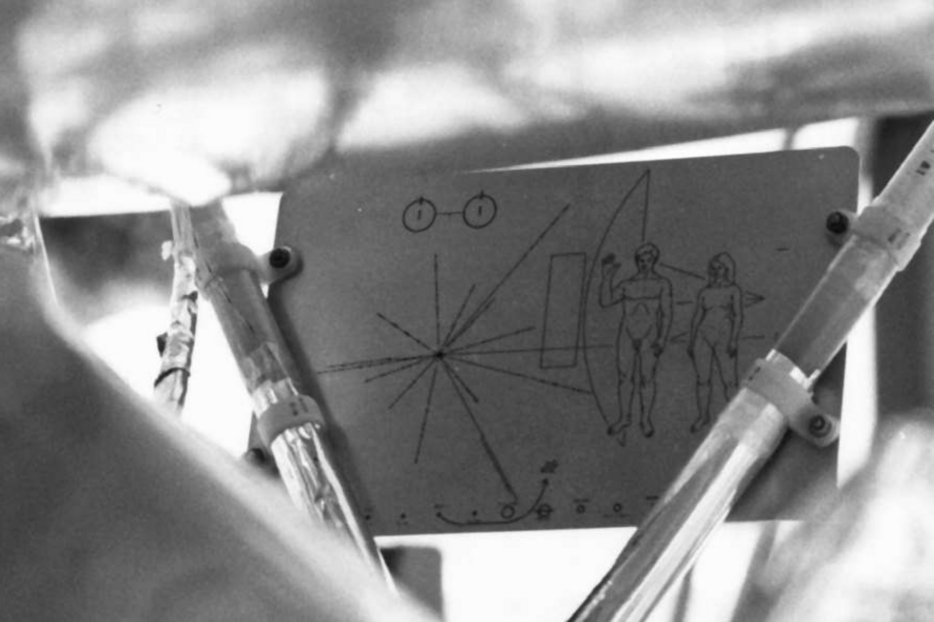A plaque attached to a Pioneer 10 in 1972 with some information about a human being aimed at any extraterrestrial intelligence – NASA
As space agencies launch new telescopes, probes and spacecraft to search for alien life forms beyond Earth, NASA has invited 24 theologians to be part of a project wanted by the space agency that will include the Inquiry Theological Center in Princeton, US. Its goal is to create “bridges of understanding by inviting clergy, scholars, scholars and political leaders to think together — and inform the public — about global concerns.” Among these problems are questions such as “What is life? What is the boundary between human and alien? What are the possibilities of life on other worlds? ». Among the theologians to be named is Andrew Davison, a Cambridge priest and theologian with a PhD in biochemistry, who has recently dealt with astrobiology (the science that studies the search for extraterrestrial life) and evolutionary structure. His work will soon be published in Exobiology ( Astrobiology and Christian Doctrine) Which deals with the relationship between alien life and major aspects of the Christian faith. “Religious traditions will be an important feature in the way humanity will deal with the affirmation of life elsewhere – Davison wrote on the University of Cambridge website – and for this reason, supporting work at NASA is part of NASA’s goal. Social implications of astrobiology.” Davison explains: “My project (within a NASA project) is easy to spot. I’m surveying the main themes of the Christian faith from the point of view of life elsewhere in the universe. I’m thinking about its relationship to the doctrines of creation, sin, the person and work of Jesus, redemption, revelation, and eschatology.” So far my interest has mainly focused on what theologians call Christology: a discussion of who Jesus was, and in particular what it means to be considered human and divine.Now, given the great possibility of alien life, there is a theological question to be answered regarding the perspective of life in other worlds: Do we have to think of many incarnations or just one person theologians speak of in Jesus?” A problem that must be properly addressed before the big announcement comes. Even Jose Gabriel Funes, director of the Vatican Observatory, when asked about the relationship between astronomy and faith, repeatedly reiterated the possibility of extraterrestrial life: «In my opinion, this possibility exists. Astronomers believe that the universe consists of a hundred billion galaxies, each made up of hundreds of billions of stars. Many or almost all of these planets may have planets. How can we rule out that life also evolved elsewhere? “. Funes repeats that even if there is no evidence, the existence of beings similar to ours or more evolved cannot be ruled out. And if their existence is discovered there will be no problems for our faith.” Since there are many creatures on Earth, there can be other beings, even Intelligent beings, created by God. This does not contradict our belief, because we cannot place restrictions on God’s freedom of creation. Francis, if we consider terrestrial creatures such as ‘brother’ and ‘sister’, why can’t we also speak of ‘extraterrestrial brother’? In any case, it will be part of creation.”

“Internet trailblazer. Travelaholic. Passionate social media evangelist. Tv advocate.”







More Stories
Leonardo da Vinci, The Rotting Gym, The Masters: “How to Enter the Cellar”
What is the center of the universe? The answer will leave you breathless
If you notice these spots on your nails, contact your doctor immediately: the diagnosis is clear and should not be underestimated